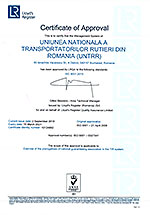19.03.2020: informații actualizate privind măsurile luate de unele state în contextul COVID-19
Bulgaria
Restrictions
In a new order, from 00:00 on 20 March 2020 until 17 April 2020, the Minister of Health has temporarily prohibited entry into the territory of the Republic of Bulgaria of all third country (non-EU) nationals through all border crossing points by all means of transport. Transport personnel engaged in the transport of goods are excluded from the scope of this order.
The prohibition of entry of EU nationals from Italy, Spain, France, UK, Germany, Netherlands and Switzerland and the respective arrangements for drivers coming from these countries, previously announced, remains in force.
As of 00:00, 18.03.2020, entry into the territory of the Republic of Bulgaria for people coming from the following countries is forbidden: China (the People's Republic of); Iran (the Islamic Republic of); Bangladesh; India; Maldives (the Republic of); Nepal (the Federal Democratic Republic of); Sri Lanka (the Democratic Socialist Republic of); Spain; Italy; Korea (the Republic of); United Kingdom of Great Britain and Northern Ireland; Northern Ireland; France; Germany; the Netherlands and Switzerland.
Bulgarian citizens, as well as persons with either long or permanent residence in Bulgaria, and their families, are exempt from this ban. They will be subject to a 14-day quarantine either at home or any other accommodation of their choice.
A special regime has been arranged for the truck drivers (official decree here):
- Bulgarian truck drivers are also subject to the 14-day quarantine, unless they are returning to one of the countries on the list. In this instance they must remain in quarantine until they leave;
- Non-Bulgarian drivers - citizens of the above countries or coming from them - can load and unload goods, but should then immediately leave the territory of Bulgaria. In the case of transit, the transit operation should be done within 24 hours;
- In addition, an according to an additional order published by the Ministry of Health, entry and transit of trucks registered and coming from the Islamic Republic of Iran are temporarily forbidden.
Relieves
The Bulgarian government granted temporary tolerance concerning the enforcement of driving and resting times for drivers under the EU Regulation 561/2006 to the national and international transport of goods This exception applies from 19.03.2020 00:00 to 16.04.2020, 24.00. Measures lifted are the following:
- Art. 6(1): replacement of the maximum daily driving limit of 9 hours with one of 11 hours;
- Article 7: replacement of the minimum daily breaks requirements by imposing a break of 45 minutes after 5 and a half hours;
- Art. 8(6): reduction of the regular weekly rest period from 45 hours to 24 hours.
Source: AEBTRI
Finlanda
The Finnish Government is restricting traffic at borders from 19 March 2020, 00:00. People returning to Finland will be subject to 14 days quarantine.
Inbound passenger transport operations are suspended, except for citizens and residents returning to Finland. Finnish citizens and residents must not travel abroad.
Necessary travel for work and to access other necessary services will be permitted across the northern and western borders. Freight and goods traffic will continue as usual. Updated situation at borders:
- Helsinki–Vantaa, Mariehamn and Turku airportswill be kept open for goods and return traffic. Border guards may allow travel for work if there is a necessary and justified reason. Other airports will be closed to international traffic.
- At the international border crossing points of the eastern border, traffic and opening hours will be restricted.
- Passenger traffic via the Vainikkalaborder crossing point will be suspended.
- Road and rail transport:
- Imatra, Kuusamo, Niirala, Nuijamaa, Rajajooseppi, Salla, Vaalimaa and Vartius border crossing points are only for goods transport, and returning home to/from/via Finland for Finnish and other EU citizens as well as citizens of the Russian Federation.
- Inari, Parikkala and Vainikkala border crossing points are only for goods transport.
- At the border between Finland and Norway, Kilpisjärvi, Karigasniemi, Kivilompolo, Nuorgam, Näätämö and Utsjoki will be kept open for goods and return traffic. In addition, necessary travel for work and other necessary traffic may be permitted. Crossing the border is not permitted elsewhere.
- At the Finnish–Swedish border, Karesuvanto, Kolari, Muonio, Pello, Tornio and Ylitornio will be kept open for goods and return traffic. In addition, necessary travel for work and other necessary traffic may be permitted. Crossing the border is not permitted elsewhere.
Although cross border commuting is not prevented, the reduction in air and sea traffic will make it significantly more difficult for foreign workers to enter Finland from abroad. In the case of EU citizens and people with a permanent residence permit in another EU country who are returning to their home country via Finland, such travel will be allowed, taking into account the person's state of health.
Detailed measures are available here.
Source: FinMobility
Franța
As from 17 March, 12:00, and for 15 days, new measures have entered into force to limit activities and public gatherings in order to limit the effect of the coronavirus (COVID-19) pandemic. A national lockdown has been declared. People are allowed out only for emergencies, to buy food or for work (a written document must justify any movement). Freight transport is exempt from the movement restrictions. However, truck drivers should have the following document with them.
Only the Schengen area borders are being closed for the next 30 days (external borders of the European Union).
Following considerable disruption on the road encountered by road freight transport and logistics operators following the announcement of the lockdown, the French Government have issued new measures to facilitate freight transport. These include guarantees for access for freight transport and logistics workers to their workplace and to loading and unloading places, extra protection for freight transport and logistics workers and a derogation to keep stores, restaurants and sanitary facilities open at services stations. The text of the announcement can be found here.
Sources: French Government and FNTR
Georgia
As part of the Coronavirus (COVID-19) preventive measures, the Government of Georgia has made a decision to impose restrictions on the entry of foreign nationals. The restrictions are effective from 18 March 2020, 00:00, and will remain in force for two weeks.
The restrictions will apply to all foreign nationals, with the exception of:
- Representatives of diplomatic missions and international organisations accredited to Georgia, and their family members;
- Family members of Georgian citizens, despite their nationality (spouse, child or parent; relevant documents must be presented);
- Persons arriving in Georgia as part of a necessary humanitarian mission (ie. doctors, volunteers);
- Individuals who have been granted the status of stateless person by the respective authorities of Georgia;
- Individuals holding status-neutral travel documents;
- Individuals with a refugee status in Georgia;
- Official delegations - this will be decided on a case-by-case basis;
- Train and truck drivers involved in the transport of goods and services;
- Aircrew.
The Head of the Government of Georgia has noted that there are 4 areas of critical significance which must be managed effectively in order to combat the challenges faced.
One of these areas is logistics and stock management. In this regard, and in order to ensure the smooth running of freight road transport, trucks entering the country from areas designated by the WHO as a high-risk zone will have to comply with the following rules:
- the complete disinfection of the truck under the supervision of authorised customs personnel;
- the escort of trucks to their destination (in the case of transit);
- the replacement of the driver at the border crossing point:
- the original driver (the person driving the vehicle to the customs border of Georgia) will either be subject to return (if he is a foreign citizen), or quarantined/admitted to the relevant medical institution depending on his clinical condition;
- the truck driver taking over the operation should not be considered a risk to the spreading of the Coronavirus (COVID-19).
- the replacement of the truck and trailers, if deemed necessary.
Sources: GIRCA and Ministry of Foreign Affairs of Georgia
Irlanda
Restrictions
The Irish Government have issued special advice about travelling, including restricting movements for 14 days on those entering Ireland who have been to affected areas. Freight transport is exempted. The government published a guidance note for supply chain workers. This document contains about one and half pages of useful guidelines for drivers.
To reduce the risk of infection, the ferry company Seatruck Ferries has temporarily stopped shipping any HGV drivers or any other passengers in their Irish Sea vessels. Accompanied road transport (complete truck combinations with driver) is then stopped until further notice, but the company will continue to carry unaccompanied semi-trailers, containers and swap bodies.
Relieves
In response to the extraordinary crisis due to the coronavirus pandemic (COVID-19), Ireland has agreed to a temporary and limited relaxation of the enforcement of driving and rest times rules for the drivers of vehicles engaged in domestic and international goods transport. This relaxation is granted pursuant to Article 14(2) of Regulation (EC) No 561/2006 and applies from 18 March 2020 and will run until 16 April 2020, provided that road safety is not affected [impaired] when transport companies make use of these exemptions. Employers remain responsible for the health and safety of their employees and other road users. For the above mentioned category of drivers, the following provisions will be temporarily relaxed as follows:
- Derogation to Art. 6(3): the fortnightly driving limit is lifted from 90 hours to 112 hours.
- Derogation to the Art. 8(6): in any two consecutive weeks a driver shall take at least two reduced weekly rest periods whilst maintaining the rule that a weekly rest period shall start no later than at the end of six 24-hour periods from the end of the previous weekly rest period. There shall be no requirement for compensation or for a regular weekly rest period to be taken.
Source: IRHA
Italia
On 17 March, the government released a new version of the certificate, by which the declarant also affirms that they are not quarantined. The State Police confirmed the document cannot be presented digitally (apps or pdfs), but has to be printed, signed and given to the police officer. Photocopies of a completed document are not accepted either.
On 18 March, the Transport Ministry published a new decree: 14 days mandatory isolation for people entering the country. Such a decree does not apply to road transport workers delivering or transiting through Italy, provided they leave the country after 72 hours.
Concerning connections to Sardinia and Sicily, passenger transport has been heavily restricted:
- Sicily: until 25 March, there are only 4 round trip trains a day running on the following lines: Messina-Villa San Giovanni, Messina-Reggio Calabria, Villa San Giovanni-Reggio Calabria. Categories allowed to move: police and armed forces, healthcare professionals, commuters, people moving for justified work reasons/serious health reasons/necessity. Freight transport operates normally.
- Sardinia: (national decree and regional implementing act) regular passenger transport is suspended until 25 March. People can still reach the island for justified work/health reasons or in case of return to their place of residence. People wanting to travel to and from Sardinia have to fill out the online form before travel. Air connection is guaranteed only on the Cagliari-Roma route; passengers have to be authorised by Sardinian regional authorities before boarding (same online form to be filled out at least 48 hours before departure). At boarding, passengers have to present a printed copy of the form together with their identity card and the filled out self-certification. Freight transport can continue provided goods are unaccompanied. In case the container cannot be separated from the motor vehicle, the driver is allowed to board the vessel. Online form and self-certification have to be filled out.
Sources: Italian Ministry of transport, Ministry of Interior and Sardinia Region
Lituania
Coming into effect on 16 March, 00:00, the Lithuania Government has announced a two-week nationwide quarantine (third level of the national plan).
Lithuania reintroduced control of its borders with Poland and Latvia on 14 March. Foreign nationals will not be allowed to enter the country by any means of transport, unless they work and live permanently in Lithuania (a temporary corridor will be available for Latvian and Estonian citizens to reach their countries).
Goods transport is still allowed. However, foreigners are banned from entering the country, unless they are making necessary deliveries of goods to Lithuania.
The number of border crossing points to enter Lithuania have been reduced to the following:
Kalvarijos–Budzisko, Saločių–Grenstalės, Būtingės–Rucavos, Smėlynės–Medumės, Medininkų– Kamenyj Logo, Raigardo–Privalkos, Kybartų–Černyševskojės, Panemunės–Sovetsko, Kenos– Gudagojo, Šalčininkų–Benekainių, Mockavos-Trakiškių, Lazdijų–Ogrodnikų, Vilnius, Kaunas, Palanga, Šiauliai international airports, Vilnius railway station and Stasylai railway border crossing points and Klaipeda seaport.
Border crossing for commercial and/or international freight transport is additionally carried out through Stasylai-Benekainiai railway border crossing point and Pagėgiai-Sovetsk railway border crossing point, and facilitated transit of persons from the territory of the Russian Federation to the Kaliningrad region of the Russian Federation and back to the territory of the Russian Federation shall additionally pass through the Kena Railroad Border Inspection Post and the Kybartai Railway Border Inspection Post.
The number of local passengers on intercity buses and trains is restricted to maintain the necessary distance between passengers.
Source: LINAVA
Mongolia
In relation to the prevention of the Coronavirus (COVID-19) epidemic, the Government of Mongolia is taking the following measures:
- The entry of foreign, third country citizens and stateless persons is prohibited, from 11 - 31 March, 2020;
- Air traffic and international train movements are cancelled from Russia, Kazakhstan and Turkey, from 10 - 28 March, 2020;
- All borders remain open for the flow of goods and truck drivers;
- National bus, air and rail transport is all operating normally.
Source: NARTAM
Regatul Țărilor de Jos
Currently, the Netherlands is under a relatively relaxed Coronavirus (COVID-19) regime. Most people work from home. The government aims to have the number of infected people at the same time under control. Shops remain open although certain department stores have individually decided to close.
To enable an efficient loading and unloading procedure at shippers’ premises, it is recommended that drivers take personal protection materials with them such as masks and gloves.
The associations are in communication with the government in order to safeguard restaurants and other facilities for drivers. The Ministry recommends that drivers take their meals at fuel stations. All other restaurants remain closed until at least 6 April.
There is an ongoing debate in the Dutch Parliament and it is possible that measures will become stricter in the coming days.
Sources: Evofenedex and TLN
Turcia
All border gates have been closed to passengers from the following countries: Italy, Germany, France, Spain, Norway, Denmark, Belgium, Austria, Sweden, the Netherlands, China, Iran, Iraq, South Korea, United Arab Emirates, Saudi Arabia, Japan, Singapore, Hong-Kong and Thailand.
Turkish truck drivers entering the country from any of the listed countries will be quarantined for 14 days at home. Non-Turkish truck drivers (if they are not citizens of the listed country) entering the country from any of the listed countries will be quarantined for 14 days at the border and will not be permitted to enter Turkey during the quarantine period. Truck drivers who are citizens of the listed countries will not be allowed by Turkish authorities to enter Turkey.
With effect from the 15 March, the Sarp/Sarpi border between Turkey and Georgia has been closed for all passenger transport; passengers will be redirected to other land borders between the two countries. No restrictions have been imposed on freight transport.
With effect from the 19 March, the following borders have been closed to passengers for both entry and exit: Ipsala, Pazarkule, Uzunköprü (railway) the border between Turkey, Greece and Kapıkule (road), Kapıkule (railway), Hamzabeyli, Dereköy border between Turkey and Bulgaria. There will be no restrictions for goods transportation.
Source: Ministry of Interior – Republic of Turkey


































